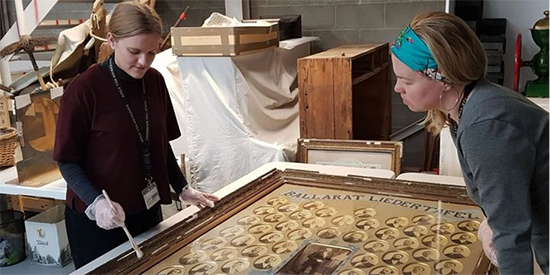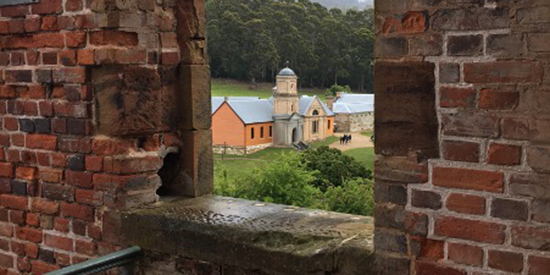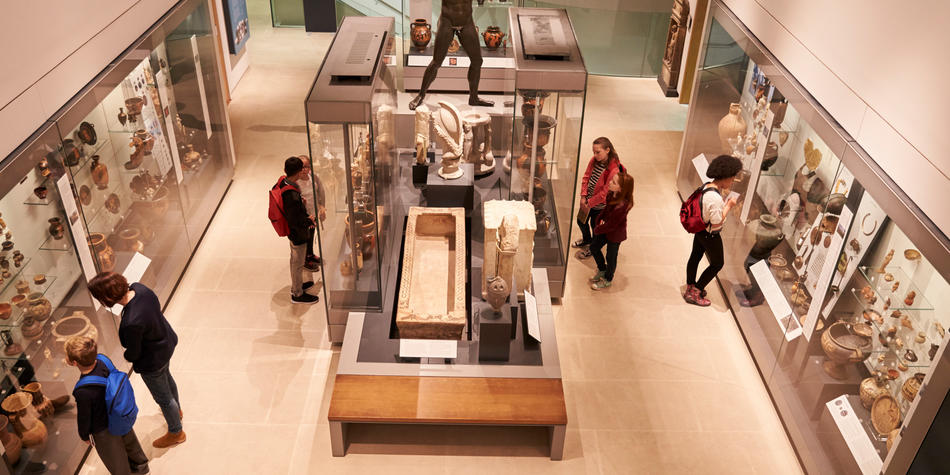Understanding our past can help us shape our future. If you’re fascinated by stories and enjoy identifying, collecting, and interpreting history to inform how cultures and societies around the world look ahead, Deakin’s postgraduate cultural heritage and museum studies courses could help you pursue a flourishing career.
‘Our students go on to enjoy really diverse and varied careers,’ says Kristal Buckley, former course director for the Master of Cultural Heritage and Museum Studies. ‘We have graduates working as museum curators, heritage officers, collections managers and in art gallery jobs, government agencies and community-based heritage organisations.’
Exploring Deakin’s unique offering
Deakin’s Master of Cultural Heritage and Museum Studies is the longest continuously running course of its kind in Australia. ‘We celebrated our 40th anniversary in 2019,’ Buckley says. ‘Our course is fully developed, written and taught by our team, who all have industry experience and active research interests. It provides for a coherent overall experience where the learning is constantly linked up and builds on previous studies.’
Students can choose between two specialisations:
- collections and curatorship, which focuses on museums, and
- heritage practice, which concentrates on place management, policy, and advocacy.
‘A lot of the core coursework requirements are the same across both areas, but through elective choices students can pursue in a much more focused way one or the other of these specialisations,’ Buckley says.
There’s also the option to study a Graduate Certificate of Cultural Heritage and Museum Studies or a Graduate Diploma of Museum Studies and springboard into the Master of Cultural Heritage and Museum Studies.
Or you might choose to pursue a doctorate, says Buckley. ‘Some students are aiming to move toward PhD candidature following the completion of their masters.’
Whichever course you study, you’ll finetune a broad, global outlook that celebrates diverse histories and stories. ‘We have always taken a highly internationalised approach,’ Buckley says. ‘While we’re mostly preparing students to work in local jobs, we have students in all parts of Australia and in overseas locations. We position what we teach in an international context.’

Ellina Evans, on an internship at the Sovereign Hill Gold Museum

Students explore the heritage site of Port Arthur, during their Applied Heritage project fieldwork in 2016
Honing your professional skills
Students from a wide variety of backgrounds are drawn to Deakin’s cultural heritage and museum studies courses. Some are eager to complement undergraduate studies in areas such as history, anthropology, fine arts, visual arts, Indigenous studies, international relations or architecture. Others are teachers, librarians, journalists or public servants interested in making a career change. And then there are the professionals already working in the field, who are keen to specialise, formalise their skills, or upgrade their existing qualifications.
Wherever you’ve come from, industry-based learning will help you refine the practical skills you’ll need for success in this dynamic field. Internships, field work and visits to galleries, museums and heritage sites will give you valuable professional experience.
‘Many of our students add an internship to their course plan,’ Buckley says. ‘They choose workplaces that align with their future plans – in government and private sector institutions, community-based organisations, museums, galleries, archives, libraries, historic sites, tourism destinations – all kinds of places.’
Students can also take part in an applied heritage project, where they work in a team to a brief established by a host site or organisation. In the past these projects have included developing visitor surveys or content, or identifying site management issues and researching future options. ‘This type of learning draws on all the other learning you’ve done in a more conventional teaching environment and puts it into an applied context, allowing you to engage with important and inspiring professional colleagues in the field,’ Buckley says.
Choosing flexible modes of study
Whether you live around the corner from campus or on the other side of the country, Deakin’s cultural heritage and museum studies courses are accessible to everyone.
‘Deakin has a long-standing commitment to excellence in Cloud learning, and the fact that people can study anywhere has really enabled our program to grow,’ Buckley says. ‘What we find is that our students are busy people, and they want to fit study into their life rather than the other way around.
‘The flexibility of study options and study modes, our industry connections and the high quality of cloud-based learning, are really big strengths of our course.’
Inspired to understand the past and shape our shared future? Explore the Master of Cultural Heritage and Museum Studies.

